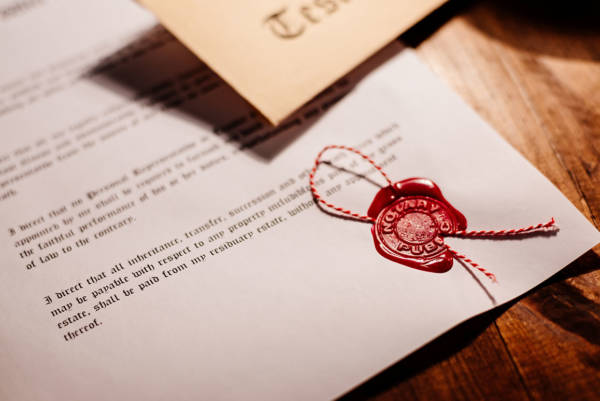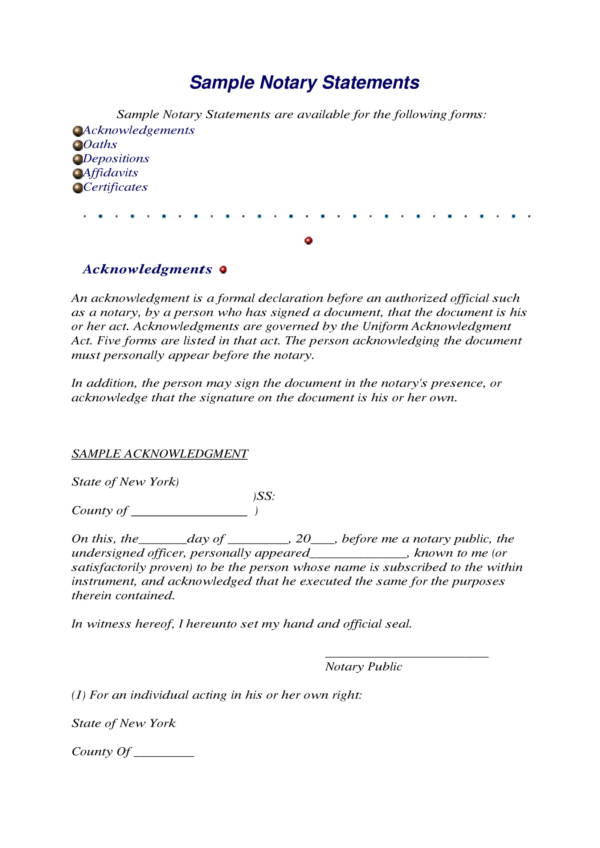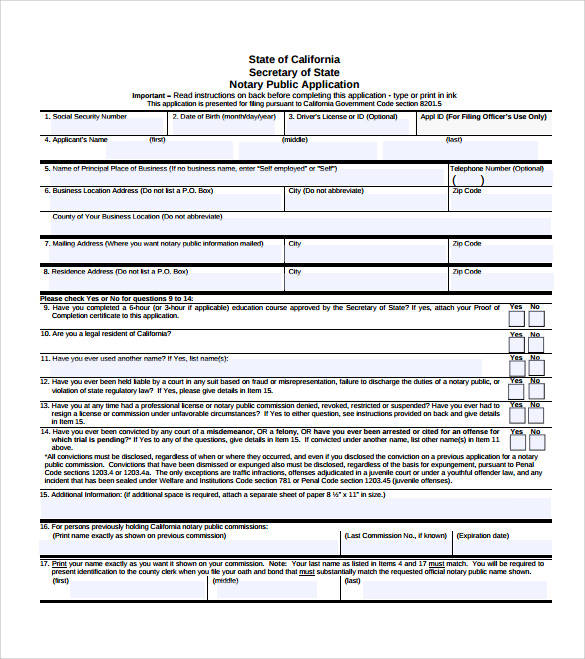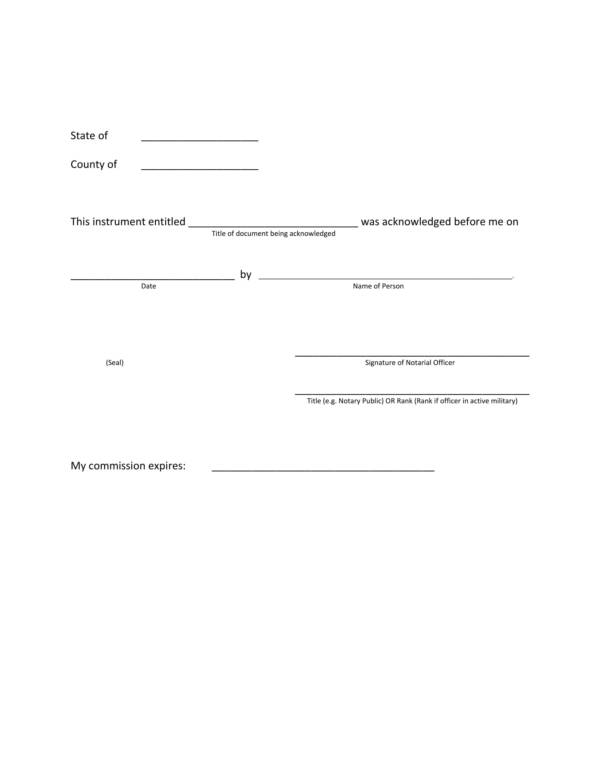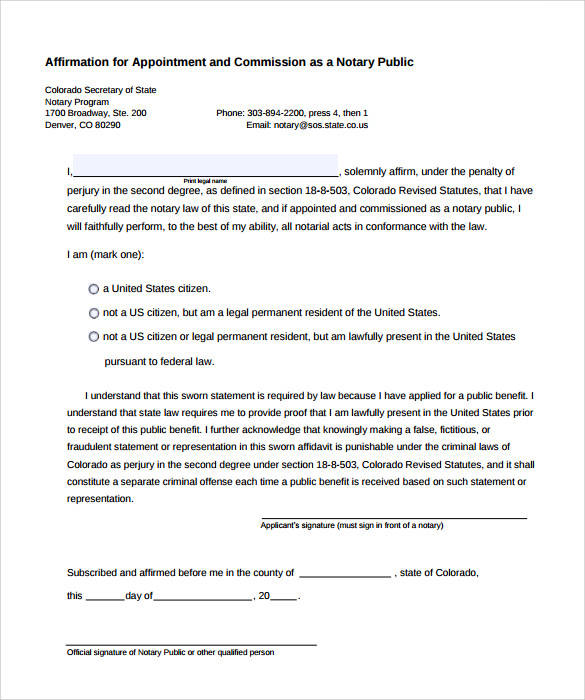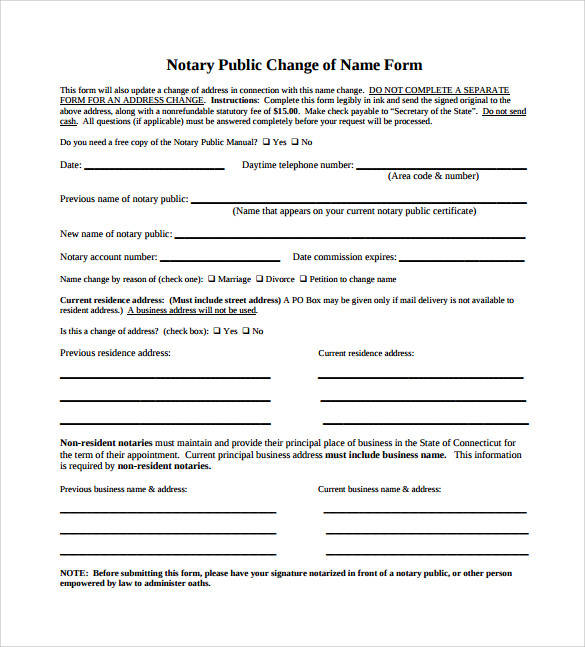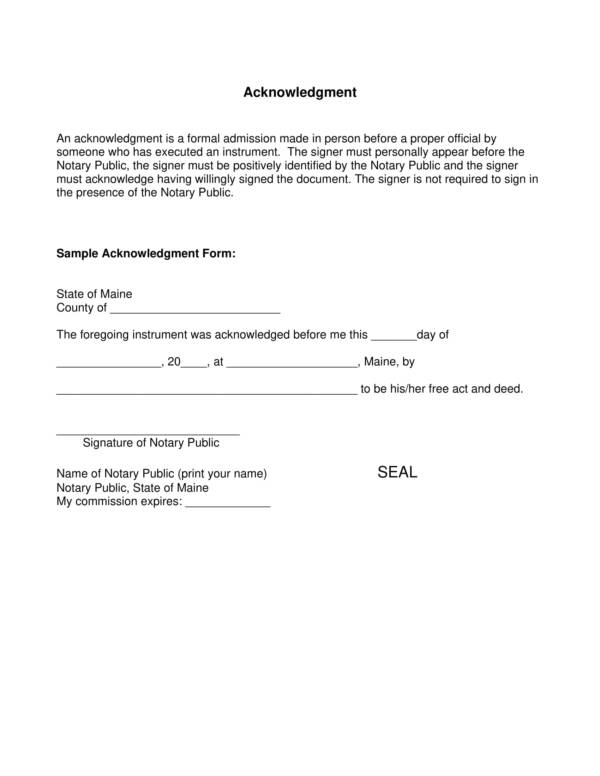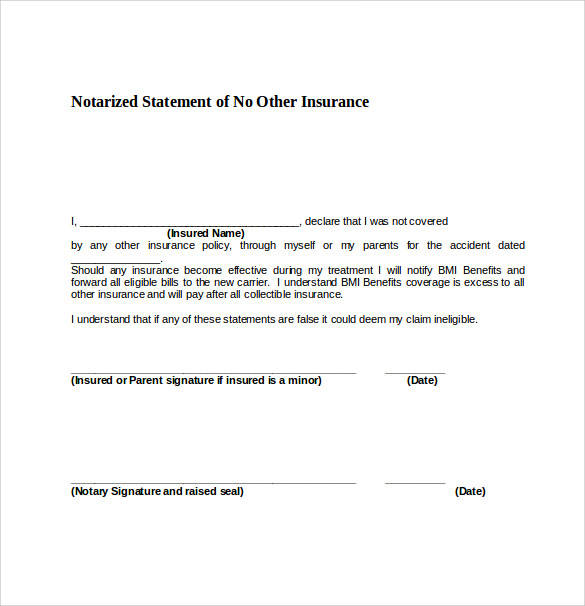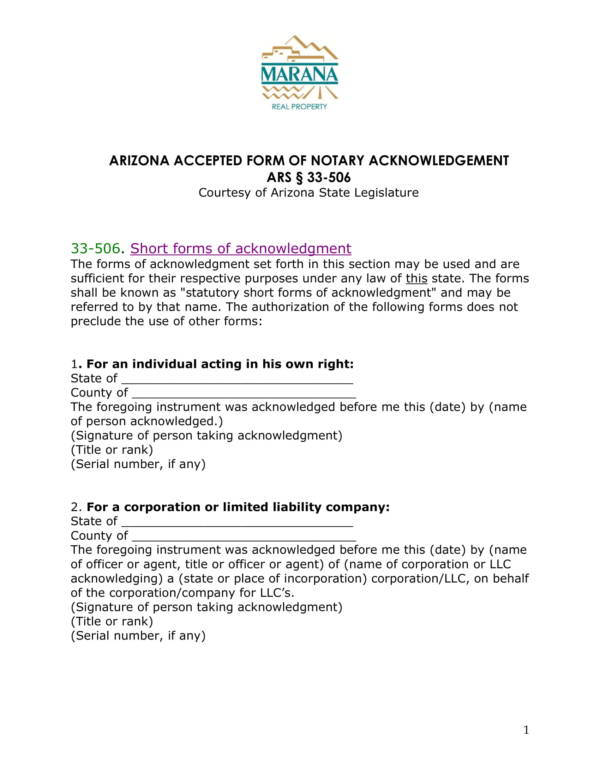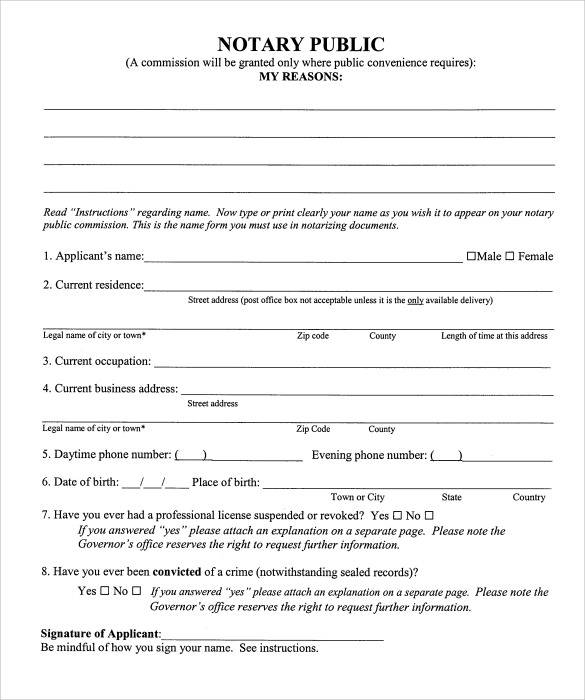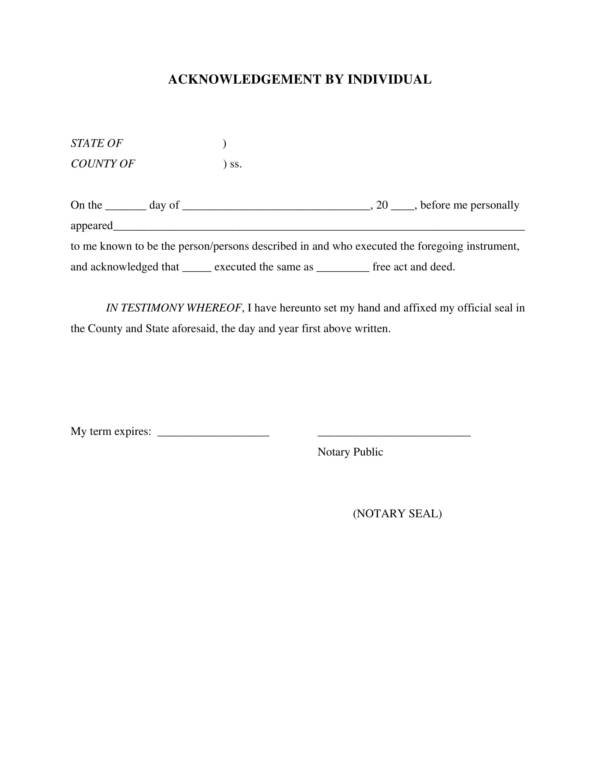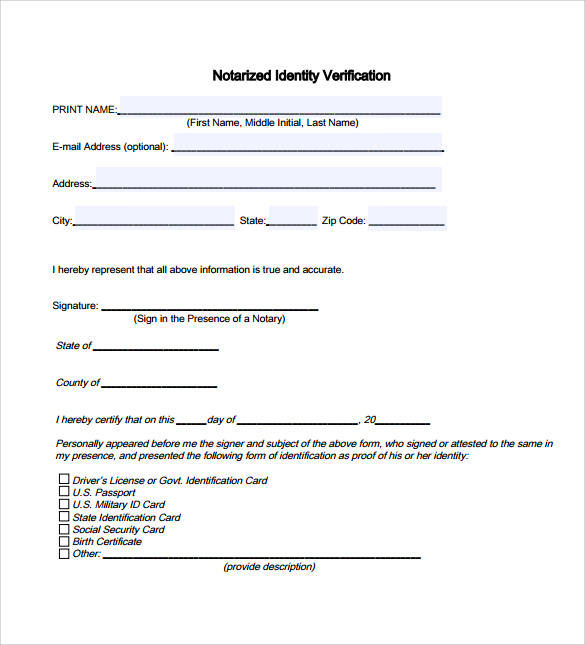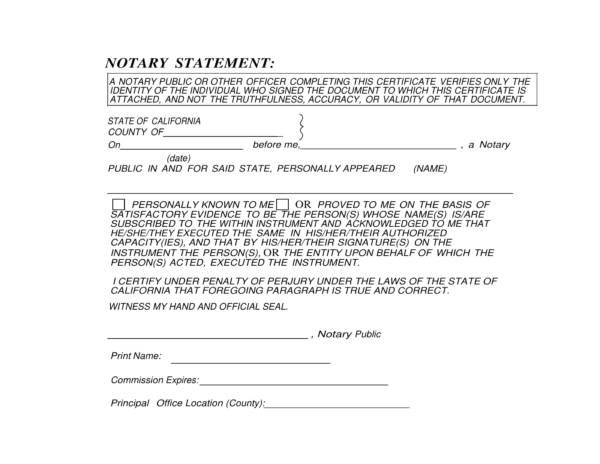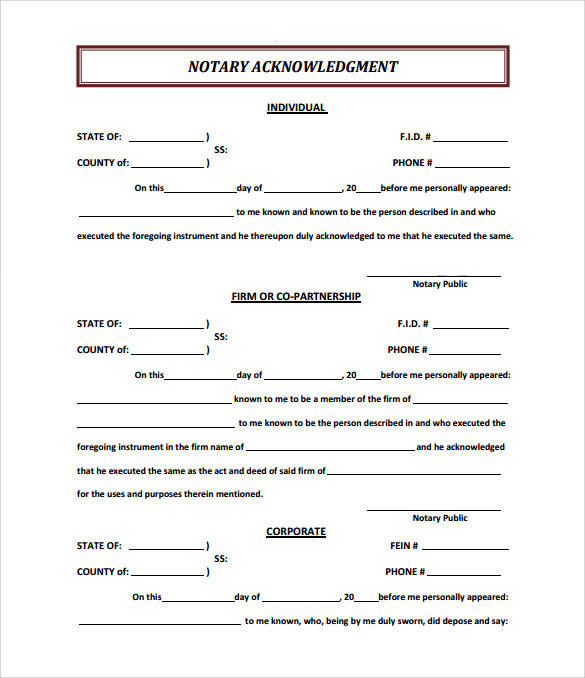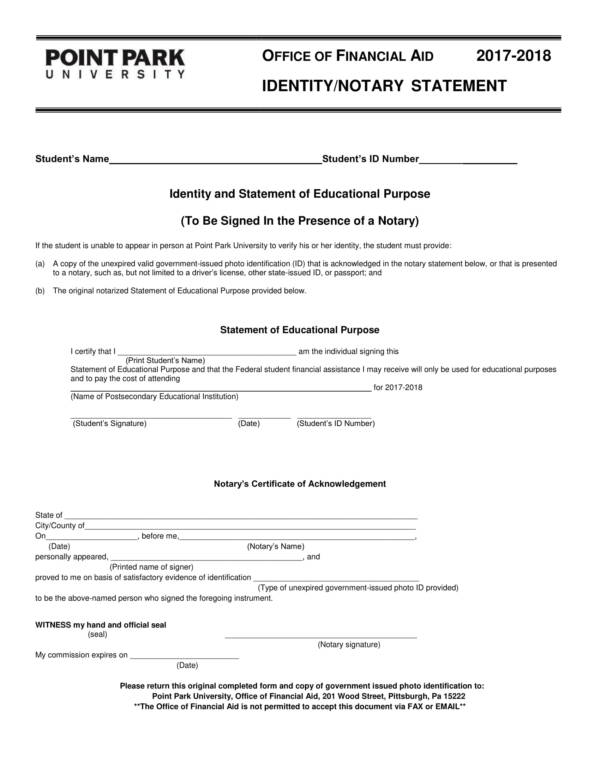We hear, read, and make statements on a daily basis. Statements have been part of our daily activities long before we were told what they are. There are a lot of different statements, either verbal or written, that are being used today in almost anything.
In this article, the main topic of our discussion would be all about statements, specifically notary statements. We have gathered together important and useful information, as well as notary statement samples and templates that you may use as reference on learning about it. Yo may also download and use the templates as your own whenever you need to.
Sample Notary Statement Template
Notary Public Form Template
Sample Notarial Certificates
Sample Affirmation Notary Statement Template
Notary Statement Sample Forms
Sample Notary Public Clause Template
Oath of Affirmation Template
Notarized Statement of No Other Insurance
What Is a Notary Statement?
We commonly hear the word notary being uttered or said when something is about or related to legal matters and other legal discipline. If you work in the government or if you are processing legal documents, then the word notary is a part of your everyday activities. Documents that are notarized include a notary statement. A notary statement is defined as a solemn declaration statements that tells or proves that the given statement or the act it is referring to is true. It is also known as an oath. you may also see Sample Notarized Letters.
Notary statements are notarized by a notary public in the presence of the certain witnesses. In order for the document to be notarized, the individual or entity requesting the notarization should first be identified by the notary public. To identify the requesting person or entity, the following requirements must be met:
- The person or entity requesting the notarization is personally known to the notary.
- The person or entity requesting the notarization is identified upon affirmation or oath in the presence of a credible witness that is also personally known to the notary. you may also see sample confidentiality statements.
- The person or entity requesting the notarization has the required identification documents that proves that they are the person who they claim to be.
There are a lot of known uses of a notary statement because it is one of the basic requirements to get various documents legalized and recognized by the law. The following are some of the uses of a notary statement:
- Notary statements are used to confirm written documents or affidavits for use in court proceedings and in doing real estate transactions that involves land titles.
- Notary statements are used to serve as proof that the claims of a person or entity is true and accurate. They are sworn statements, which means that they are declared under oath by the person or entity who requested for the document to be notarized.
- Notary statements are used to certify that the copy of a certain documents is accurate and a true copy of the original. It bears the words “Certified True Copy” in it.
Almost all legal documents need to be notarized, that is why notary statements are so important and are widely used. We also have other legal statement samples and templates available on our website that you might want to check out. They are disclosure statement, statement of facts samples, and sample confidentiality statements, to name a few.
What Are the Two Types of Statements?
There are two known types of statements that we use currently and they are verbal statements and written statement. Let us take a look at their similarities and differences below.
1. Verbal Statements
- Verbal statements are those statements that we say verbally. They could be about anything from personal things or business-related things. Its form and use come in different varieties so anyone can make them. you may also see warranty statements.
- Some agreement contract can be formed with verbal statements where the parties hold on to or rely on each other’s promises in doing their part in the agreement. But it is not what most people prefer.
- Verbal statements say something about something. They are used in court as evidence for a certain case that is given by a witness, either for the side of the defense or the defendant’s side.
- They are often reliable sources of information.
- We make verbal statements to convey information to someone or to a group of people upfront.
- Since it is given verbally, the statement does not offer or provide proof or documentation of what has been said and done about something. you may also see statement of facts samples.
2. Written Statements
- Written statements are the exact opposite of verbal statements. Instead of being given verbally, they are written on paper or using other mediums that yield or provide an actual and tangible output.
- These statements are preferred over verbal statements because it provides a written output of what has been said about something, which serves as proof for a lot of different purposes.
- Written statements also serve as a documentation of something, especially if used in legal statement matters.
- It can be used as a court evidence that is signed and sworn in the presence of the authorities and witnesses. It supports one’s claims about a particular event or incident and ensures that the statement provided is true to the best of their abilities.
- Written statements make up almost the entire part of different kinds of important things, like documents, sample certificates, memorandums, contracts, etc.
Notary statements are written statements and will always be in the written form. Other statements that should be in writing are employer statements, declaration statements, and warranty statements, to name a few.
Accepted Forms of Notary Acknowledgement
Sample Notary Public Application
Notary Statement of Acknowledgement by Individual
Notarized Identity Verification Template
Notary Statement Template
Sample Notary Acknowledgement Form
Common Types of Notary Statement and Their Uses
Notary statements come in different types that are used for a lot
Identity/Notary Statement Template
Common Types of Notarization and Their Uses
As mentioned above, almost all legal and government documents need to be notarized, that is why they all have notary statements in every document. There are different types of notarization done on particular documents that are based on how they are used and on what things they will be used for. The common types are acknowledgments, jurats, oaths/affirmation, copy of certification template, and signature witnessing.
1. Acknowledgments
This type of notarization is done in the presence of notary public or a public official, like the mayor or the mayor of the state, the judge of particular area, etc. It is a document that formally declares a signature true and accurate in the presence of the authorities. It is a way of identifying the person or entity who signed the document and to confirm that they really had it signed. you may also see Sample Acknowledgment Reports.
2. Jurats
A jurat is a clause that is used when the person requesting the notarized document, usually an affidavit, has sworn that the contents of the said document is true and accurate. This sworn statement is done in the presence of a notary public and a witness. It is usually found at the bottom part of an affidavit, which includes the details about when and where the sworn statement was made.
3. Oaths/Affirmations
Both oath and affirmation have the same legal effects and legally bind the person or entity requesting the notarization to the statement form in the particular document to be notarized. If an entity conscientiously objects to take an oath, then they do an affirmation instead.
4. Copy Certification
This type of notarization is used to show proof or certify that a copy or copies of a certain document is accurate and true based on the original document is was copied from. This is used when the original document cannot be submitted as a requirement of something because it is not easily reproduced or cannot be easily acquired, so a certified true copy is used as replacement. you may also see Sample Certificate Templates.
5. Signature Witnessing
There should always be a witness in any notarized document. The role of the witness in the notarization of documents is to ensure that all the details of the notarized document is complete, identify the person who is requesting for notarization, and gives the person a reminder that what they are claiming should be true and that there are legal consequences if the witness statements given are false.
The type of notarization used and the notary statement provided for a particular document depends on how and on what it is going to be used for. It doesn’t really mean that one notary statement or document should be notarized using all five types of notarization. you may also see Safety Statement Templates.
We have learned about what a notary statement is, including the criteria or requirements before an entity’s request for notarization is granted and its uses. We have also discussed about the two main types of statements, namely verbal statements and written statement. you may also see Business Statement Templates.
It is where we have determined that written statements are the preferred way of making notary statements and that all notary statements should be in writing. Lastly, we have discussed the five types of notarization as well as how, when, and why they are done on legal documents. We do hope that you find this article useful. You may also check out other interesting and related articles we are offering for free on our website. Some of these articles are Purpose Statement Templates, Safety Statement Templates, and Business Statement Templates.
Related Posts
9+ Sample Artist Statements
9+ Sample Safety Statement Templates
9+ Diversity Statement Samples
9+ Statement Letter Samples
8+ Problem Statement Samples
6+ Victim Statement Samples
5+ Personal Statement Samples
15+ Sample Capability Statement Templates
10+ Sample Thesis Statements
9+ Sample Victim Impact Statements
9+ Income Statement Samples
8+ Sample Personal Statements
8+ Sample Mission Statements
7+ Closing Statement Samples
7+ Income Statement Examples
